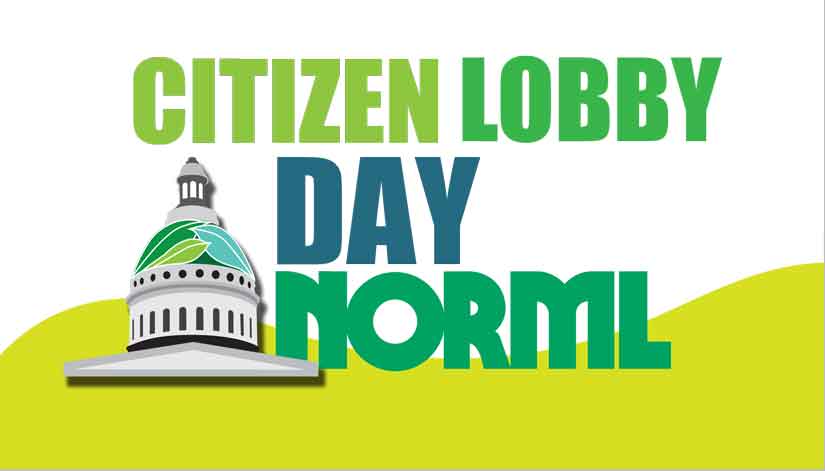
Missouri NORML chapters across the state will once again focus on the spring legislative session which started January 9, 2020. A number of marijuana-related bills will be considered in the spring 2020 session that could affect your rights as a cannabis consumer.
The first lobby day is schedule on February 26, 2020 at 11:00 am in a reserved area at the Capitol in Jefferson City, Missouri. Details will be posted here and social media.
Our tentative schedule is that we will meet in a room at the Capitol for a briefing on the pending bills and how to meet with legislators. We’ll break up into teams to make the rounds to your representatives. By 3:00 pm we will meet again in the Capitol. Shortly afterwards we’ll congregate at Arri’s Pizza across the street to review our notes, eat and drink.
We’ve scheduled two more Lobby Day events: March 25, 2020 and April 22, 2020. It is important that pro-cannabis issues are conveyed to the legislators with accurate and timely information. Most legislators are receptive to meeting their constituents. Some are not. But, if you are up to the challenge to speak up for rights as a legal cannabis patient, or feel our state drug policies are inconsistent with your rights to use, possess, and consume cannabis, then join as a we educate our lawmakers about cannabis consumer rights.

Listed below are the titles and a short description for each piece of cannabis-related legislation that will be debated this 2020 session.
Here are the bills and identifying numbers.
HB1385 Barbara Washington
3806H.01I – Requires the court to expunge certain marijuana offenses.
HB1376 Barbara, Washington
3821H.01I – Adds provisions relating to minority stake interests in medical marijuana businesses.
HB1455 Nick, Schroer,
3704H.01I – Prevents the state government from sharing medical marijuana user or applicant information with the federal government and others
HJR72 Chuck Basye
3619H.01I – Directs a percentage of medical marijuana tax revenue to a dedicated fund for University of Missouri School of Law Veterans Clinic
SB764 Bob Onder
Relating to edible marijuana-infused products
HB1896 Lane Roberts (Update: New filing on 12/23/19)
Adds provisions relating to background checks in the medical marijuana industry. Owners, workers and support staff of a MMJ facility must submit fingerprint cards at the time of application for a license or employee worker ID to the DHSS.
Greater St. Louis NORML will follow the legislative track of these bills as they make their way through the committees and law-making process.
Another Attack on Cannabis Edibles in 2020
Senator Bob Onder representing District 2, which includes Lake St. Louis and Wentzville, has taken up Senator David Sater’s defeated SB6 2019 bill to ban certain marijuana-infused edibles. We need to defeat SB764 in 2020.
Onder’s act prohibits the sale of edible marijuana-infused products designed, produced, or marketed in a manner to appeal to persons under 18 years of age, including candies, lollipops, cotton candy, or products in the shape of a human, animal, or fruit.

This bill would have each increment of an edible marijuana-infused product containing 10 or more milligrams of tetrahydrocannabinols (THC) stamped with a diamond containing the letters “THC” and the number of milligrams of THC in that increment.
This bill over regulates the manufacturing and packaging of cannabis medication for patients potentially increasing the cost to those most in need. Child-proof containers are already mandated by DHSS and are a better solution in preventing minors from consuming cannabis. Article XIV allows minors in the care of an adult caretaker to use medical cannabis for a qualified condition. Onder’s bill is counter intuitive by making a minor’s much needed medication less appealing to consume.
Changing the Initiative Process
The Missouri legislators will also be looking at a Republican-sponsored bill to change how citizen initiated petitions can be filed.
A Republican Senator wants to discourage citizens by increasing the cost exponentially when petitions are submitted. Under the proposed law Amendment 2 petition to legalize medical marijuana in Missouri would have had a much more difficult and expensive path to the ballot.
Sen. David Sater, R-Cassville, filed the two bills that would raise the standards.
Senate Joint Resolution 31 would ask voters to change the state constitution and require more than double the number of signatures to put a constitutional amendment on the ballot. Once on the ballot, a super majority of two-thirds of the votes would be needed to pass it.
While the votes required to put an initiative on the ballot have increased, any citizen initiatives adopted before Dec. 3, 2020 could be more easily repealed with a simple 51 percent majority.
Republicans seemed to be concerned with repealing last year’s redistricting law passed by Missouri voters.
Senate Bill 522 would require petitioners to pay $500 for each petition sample sheet they file with the Secretary of State and $25 for each page after 10 pages. The money would be refunded if the measure ultimately made it on the ballot.
Apply this proposed rule to Amendment 2’s printed format and you would incur a cost of $625 per petition. Last year’s A2 petition was 15 pages long and the extra five pages would be charged $25 each assuming there is no provision to offer a discount for blank pages.
Expungement of Marijuana Offenses
Barbara Washington’s HB1385 would have the full power of the court working to expunge a person’s marijuana possession charge. With any amount of thirty-five grams or less, a violator could have their conviction expunged from all official records. After August 28, 2020, the possession would be expunged the day the person is convicted. That’s good news for cannabis users.
Out-Of-State Ownership Limits of Marijuana Businesses Proposed
Washington’s HB1376 bill would go one step further in defining how much of an ownership stake out-of-state business entities could have in a Missouri cannabis business. She would limit involvement to just a 25 percent ownership share. This provision would limit predatory big marijuana companies from entering Missouri’s cannabis industry but would also limit the influx of capital, knowledge and experience from more experienced out-of-state cannabis firms. The bill would force Missouri cannabis business owners to keep more of their dollars in the state.
No serious challenges to Missouri’s new medical marijuana law have been filed, yet the 2020 legislative session could offer up some surprises.
